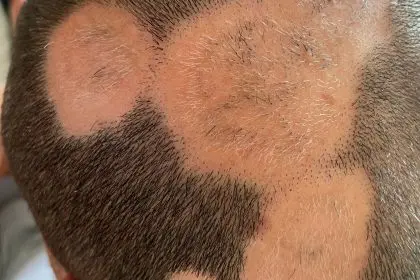When it comes to achieving radiant skin, what you put into your body may matter more than what you put on it. New research suggests that the foundation of a glowing complexion begins with internal wellness practices that address the root causes of skin concerns rather than just their visible symptoms.
The gut-skin connection
The relationship between gut health and skin appearance has emerged as a focal point in dermatological research. Scientists have identified what they call the “gut-skin axis,” a biological highway where digestive health directly influences skin condition.
“What happens in the gut doesn’t stay in the gut,” explains dermatology research. Inflammation in the digestive system can trigger inflammatory responses throughout the body, including the skin. This connection explains why conditions like acne, rosacea, and eczema often flare during periods of digestive distress.
Incorporating fermented foods into your diet represents one of the most effective ways to support this gut-skin relationship. Foods like yogurt, kefir, kimchi and kombucha introduce beneficial bacteria that help maintain digestive balance and, by extension, clearer skin.
Hydration’s hidden impact
The 1 most underestimated factor in skin health remains proper hydration. While drinking water alone won’t eliminate wrinkles, consistent hydration provides the necessary environment for cellular regeneration and toxin elimination.
Clinical observations show that even mild dehydration can amplify the appearance of fine lines and contribute to skin dullness. The generally recommended eight glasses of water daily serves as a baseline, but individual needs vary based on climate, activity level and diet.
Beyond quantity, the quality of hydration matters significantly. Infusing water with antioxidant-rich additions like cucumber, berries or citrus can enhance its skin-supporting benefits while making consistent consumption more appealing.
The sleep-skin regeneration cycle
The concept of “beauty sleep” stands on solid scientific ground. During deep sleep phases, the body accelerates cellular repair, including skin cell regeneration. Growth hormone, released primarily during sleep, plays a crucial role in repairing daily damage.
Sleep deprivation disrupts this restorative process, leading to increased stress hormones that break down collagen, the protein responsible for skin elasticity and firmness. The visible results of chronic sleep deficiency often include dark under-eye circles, sallow complexion and accelerated aging signs.
Creating a sleep environment that supports skin health involves more than just adequate hours. Temperature regulation, light reduction and consistent sleep scheduling all contribute to higher quality rest and, consequently, improved skin appearance.
Anti-inflammatory nutrition
The 2 key dietary approaches for skin health center on reducing inflammation through strategic food choices. The modern Western diet, high in processed foods, refined carbohydrates and industrial oils, creates an inflammatory environment that manifests on the skin’s surface.
Antioxidant-rich foods counteract this inflammation by neutralizing free radicals that damage skin cells. Colorful fruits and vegetables, particularly those with deep red, purple and blue hues, contain polyphenols that protect against environmental damage and support collagen production.
Omega-3 fatty acids, found abundantly in fatty fish, walnuts and flaxseeds, help maintain the skin’s lipid barrier, the protective outer layer that locks in moisture and keeps irritants out. Research indicates that adequate omega-3 consumption can reduce acne severity, decrease sun sensitivity and minimize the appearance of fine lines.
Stress response management
The 3 often overlooked aspect of skin health involves the body’s stress response system. When chronically activated, stress hormones like cortisol trigger increased oil production, impaired barrier function and heightened sensitivity, a combination that undermines even the most diligent skincare routines.
Consistent stress management practices show measurable improvements in skin condition. Regular mind-body practices, whether meditation, yoga, breathwork or other forms of relaxation, reduce cortisol levels and help regulate the inflammatory responses that affect skin appearance.
Beyond formal practices, finding moments of joy and laughter throughout the day offers protection against stress-induced skin damage. Research has demonstrated that positive emotional states support immune function and healthy cellular response, both essential components of skin resilience.
Movement’s magic on skin health
Exercise contributes to skin health through multiple pathways, with improved circulation delivering oxygen and nutrients to skin cells while efficiently removing waste products. The moderate increase in cortisol during exercise, unlike the damaging spikes caused by chronic stress, actually helps regulate oil production and supports immune function in the skin.
Regular movement also improves sleep quality, regulates hormonal balance and reduces inflammation, all factors that directly impact skin appearance. Even brief periods of elevated heart rate, whether through traditional workouts or simply taking stairs instead of elevators, contribute to the internal environment that supports radiant skin.
The path to transformative skin health ultimately combines these internal approaches with appropriate external care. Understanding skin as a reflection of overall wellness, rather than treating it as separate from the body’s integrated systems, offers the most sustainable approach to achieving and maintaining a natural, healthy glow that radiates from the inside out.


















